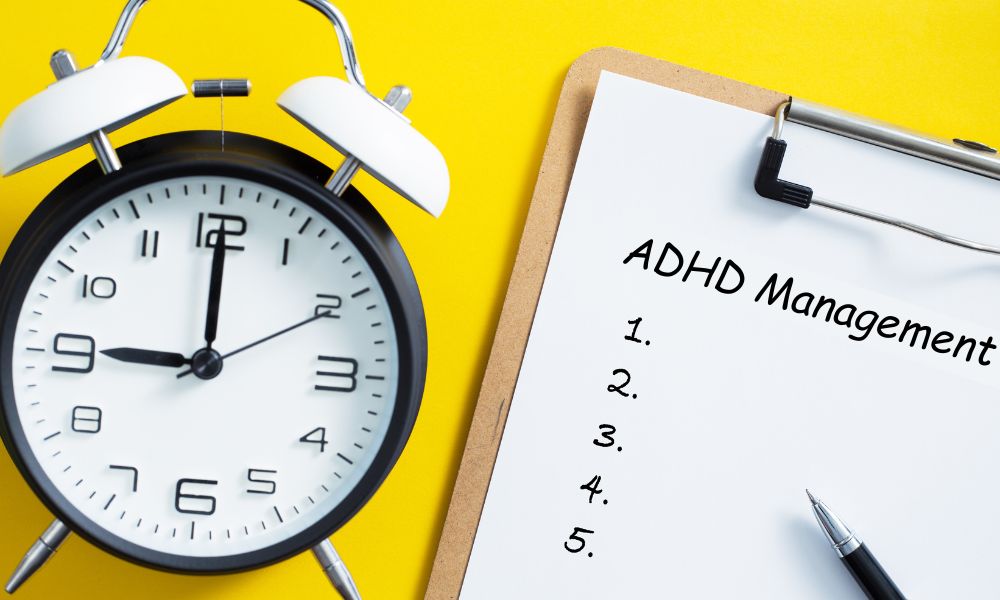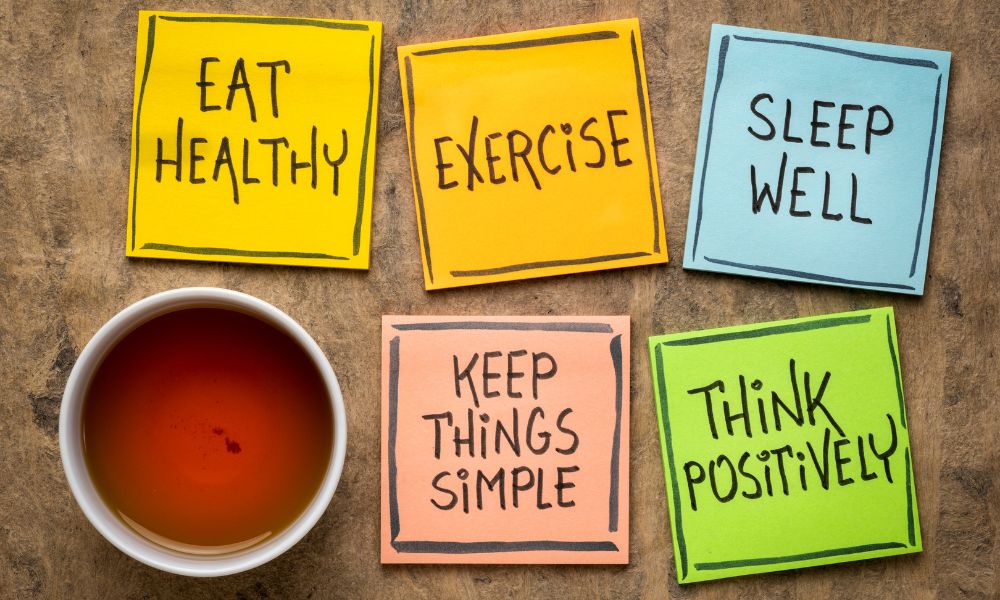
23 Jun Managing ADHD Without Medication
THE SECRET TO MANAGING ADHD WITHOUT MEDICATION

Managing ADHD Without Medication
Managing ADHD without medication can be tough, but it’s a challenge you can conquer with the right tools. From mild to severe, ADHD affects children’s ability to focus, control their behavior, and succeed socially. So if you need help to figure out the root of the problem, don’t worry – we are here to help! In this article, we’ll explore what ADHD looks like for students and provide strategies families can use to overcome academic and emotional hurdles. Buckle up and get ready to beat ADHD at its own game!
Academic Challenges: Impact on Academic Performance and Consequences in Education
When students are diagnosed with ADHD, understanding their academic challenges becomes crucial. Usually, when students have ADHD, they face issues with attention, executive functioning, organization, and time management. While these challenges vary depending on the severity of ADHD, they often show up as difficulty in planning, organizing, following directions, and submitting assignments on time. Without proper support or understanding of ADHD in schools, students may face disciplinary consequences due to their behavior or lack of progress. These situations may lead to frustration and shame, further impacting their academic success. As research has found, students with ADHD are more likely to receive lower grades than non-ADHD peers and more likely to repeat a step or drop out before graduating high school.
It is, therefore, important for families to assess the types of support available at a school before enrolling a child with ADHD to ensure that appropriate accommodation is provided for their unique learning needs. Working with teachers and school personnel can help maximize positive academic outcomes for these students.
Accommodations and Support for Students With ADHD in Educational Settings
When it comes to school, students with ADHD can use extra support to help them succeed in the classroom. That’s why special education laws, such as the IDEA – Individuals with Disabilities Education Act, ensure students’ needs are met in educational settings. We listed effective steps you can take to assist and help your child succeed:
- Develop a plan with your child’s school to ensure they have the right accommodations, such as extended time for tests and assignments, preferential seating options, or extra breaks throughout the day.
- Utilize assistive technology tools to improve organizational skills and help with distractions.
- Ask for small-group instruction when your child needs extra help focusing on a lesson.
- Make use of classroom modifications such as noise-canceling headphones or fewer distractions.
A tailored plan can make all the difference when setting up your child for success in their educational setting. It can also deliver peace of mind for both student and parent that their needs are being met appropriately.

Transitioning to College and Career: Addressing Academic and Professional Challenges
Living with ADHD can present unique challenges to transitioning to college and starting a career—first, the academic challenges. Students with ADHD may have difficulty taking tests, remembering details, staying organized, and managing time effectively. These challenges make prioritizing studying, completing assignments on time, and retaining information difficult.
Second, professional challenges. Getting a job requires being able to form strong relationships with coworkers and supervisors, as well as focus on tedious tasks for extended periods. Working long hours can be difficult if you struggle with fatigue related to ADHD symptoms.
Therefore, students with ADHD must have strategies for preparing for college and launching their careers. Here are some things to consider:
- Talk to your guidance counselor about services to help you become more independent and self-sufficient in the classroom or workplace.
- Find organizations or clubs that you are interested in so that you can practice being around other people in a professional setting.
- Make use of any relevant available resources — such as tutoring sessions or counseling — so that you can better manage your academic workload.
- Work on developing strong communication skills to stay connected with your professors and bosses.
- Practice self-advocacy skills so that you feel comfortable expressing your needs.
- Establish healthy routines such as exercise or mindfulness activities to stay productive academically and professionally.
Professional Challenges: Finding and Keeping a Job With ADHD
You probably have some ideas about the academic and emotional challenges students with ADHD face. But did you know that adults with ADHD can struggle to find and keep a job, too?
In 2016, the U.S. Department of Health and Human Services estimated that nearly 4% of adults had received an ADHD diagnosis. Adults who are struggling to find employment — or to keep their current jobs — due to the effects of ADHD on executive functioning, which can include:
- Poor time management
- Struggling to complete tasks on time
- Struggling to remember deadlines
- Difficulty planning ahead
- A lack of organization
Sometimes this can lead to difficulty finding a job in the first place, such as needing help to stay on task during interviews or getting all the documentation together in time. And once in a position, employees with ADHD often are plagued by impulsive behavior or chronic lateness, costing them valuable opportunities for promotions or raises.
For those living with ADHD, seeking professional help is key to improving job performance and getting ahead in their careers. Counseling, coaching, and support groups for those with ADHD are recommended for guidance on managing symptoms better and gaining valuable insight into any challenges they might be facing.
The Mental Health & Emotional Challenges of Students With ADHD
Students with untreated ADHD, of course, face academic challenges. But they can have emotional and mental health struggles, too. They may experience depression, anxiety, irritability, low self-esteem, and difficulty forming relationships with peers or authority figures.

➡ Managing Emotions
People with ADHD struggle to manage their moods and emotions, leading to anger and frustration. They may not take constructive criticism well and even lash out in response. This can lead to reprimands, suspensions, demotions at school and work, being passed over for a promotion, receiving lower pay than their colleagues, or even termination.
➡ Difficulties at Work
When people with untreated ADHD enter the workforce, they may come up against the same difficulties that affected their schooling: poor communication skills, distractibility, and difficulty setting priorities. Additionally, symptoms associated with ADHD — such as poor organizational skills or restlessness — can also impact work performance. Heavy workloads or complex tasks may cause difficulties for workers with ADHD due to issues like time management or an inability to juggle multiple tasks simultaneously.
The difficulties that come with ADHD can be both difficult to deal with and debilitating in some cases. Getting the right support and therapy is important to ensure students grow inside and outside the classroom. A holistic approach incorporating diet changes and medical interventions is recommended when treating students living with the condition.
Finding the Right Treatment and Resources for ADHD Families
Regarding ADHD, it can be hard to know where to turn. That’s why starting with your doctor is important—they understand your kid’s needs. Researching and talking to other families facing similar challenges is also a good idea.
It’s important to take a comprehensive approach when treating ADHD that addresses the student’s academic and emotional needs and the family’s needs. While medicine is often part of a successful treatment plan, there are many different treatments and resources available for families with a student dealing with ADHD:
- Cognitive behavioral therapy: It is a therapy to help students develop strategies for managing their behaviors and emotions, as well as assisting them to focus on their strengths instead of weaknesses.
- Parent training: This training teaches parents strategies for helping their children manage their symptoms and navigate their everyday lives better.
- Special education services: Many children with ADHD may benefit from specialized instruction and services like occupational therapy, physical therapy, and speech-language pathology to help them learn more effectively.
*Accommodations: Schools may provide accommodations such as extra time on tests or assistance in taking notes in class that can help students succeed academically.
- Medication: Stimulant medications are often used by doctors in combination with other treatments (such as those listed above) to help reduce symptoms of ADHD.
You can support your child’s success in school and life by seeking the right treatments and resources for your family’s particular needs.
Attention deficit/hyperactivity disorder (ADHD) affects millions worldwide—especially students—and can be difficult to recognize. It’s not just about poor academic performance and inability to stay focused but also involves emotional challenges that result in social anxiety, stress, and depression. ADHD can significantly impact a student’s life, making it difficult to keep up with studies and leading to low self-esteem.
Fortunately, recent research has shown that while medication remains an option for some, there are also non-medication approaches that can help manage ADHD without medication. These approaches may include nurturing healthy lifestyle habits, seeking support from family and friends, and building a support network.
In this article, we’ll explore the various strategies that can help manage ADHD without medication use. We will examine each approach’s benefits and discuss what’s needed for lasting success. Let’s dive in!

Creating a Supportive Environment: Building Routines and Minimizing Distractions
Creating a supportive environment at home is key to helping your child manage ADHD without medication. Introducing routines and minimizing distractions can help your child stay focused and develop better coping skills for their ADHD symptoms.
Tips for creating a supportive home environment:
- Establish routines for studying and completing homework, like setting a specific time each day for these activities, using a calendar or planner to keep track of tasks and due dates, and breaking up bigger tasks into smaller pieces.
- Finding a quiet space where your child can focus on their studies, free from distractions such as technology and toys.
- Limit activities that require movement or frequent shifts in attention, like watching television, playing video games, or using the computer for long periods.
- Practice positive reinforcement by rewarding your child for completing tasks or staying focused during work or study sessions.
By implementing these strategies in your home life, you can create habits and an environment that supports your child’s ability to manage ADHD without medication.
Implementing Time Management Techniques: Planning, Prioritizing, and Scheduling
For parents and students, it can be challenging to keep everyone in sync regarding managing ADHD, especially regarding time management. But some strategies can help.
Planning, prioritizing, and scheduling tasks and activities is the key to staying organized and having a manageable daily schedule.
➡ Break Down Large Tasks into Smaller Ones
Breaking down bigger assignments or projects into smaller, more manageable pieces helps eliminate overwhelming feelings from taking on too much at once. This can help students better focus on accomplishing these smaller tasks instead of being overwhelmed and avoiding the project entirely.
➡ Set Small Goals
Setting small goals makes it easier for students to stay on track throughout their day. Setting goals also help develop motivation, providing a sense of accomplishment each time a goal is achieved.
➡ Develop Routines or Schedules
Creating daily routines for yourself or using a planner or calendar will help you prioritize deadlines and complete tasks on time. Writing things down will prevent procrastination by ensuring nothing falls through the cracks. Additionally, creating routines with reminders helps keep your student organized in all areas of their life — academic, physical, and emotional — which can improve overall progress with managing ADHD without medication.
Developing Effective Coping Mechanisms: Relaxation Techniques and Physical Activity
It’s hard to manage ADHD; there is no question about it. But you can gain control over your symptoms and behavior without relying on medication. Developing effective coping strategies is vital in managing ADHD.
Relaxation techniques, cognitive-behavioral therapy, and physical activity are three positive steps that can significantly improve your life.
➡ Relaxation Techniques
Relaxation techniques have been used for centuries to reduce stress and anxiety. Mind-calming activities such as meditation, yoga breathing exercises, progressive muscle relaxation, and listening to soothing music can help you get through difficult times. They will also help you stay focused and grounded during those periods when it can be hard to concentrate due to ADHD.
➡ Cognitive-Behavioral Therapy
Cognitive-behavioral therapy (CBT) helps you understand your thoughts and how they affect your behavior. It also enables you to identify and learn how to manage your triggers better. CBT often provides positive results in a short period and can help with various issues such as self-esteem, social skills, time management, organization skills, and more.
➡ Physical Activity
Regular physical activity is great for managing ADHD symptoms by releasing “feel good” hormones called endorphins which ease tension and stress in the body—in addition, regular exercise helps improve concentration skills by allowing excess energy to be released from the body in healthy ways like running or jumping. Physical activity can also provide a much-appreciated break from the daunting tasks of homework or studying and an enjoyable social activity with friends or family members if done in group activities such as sports games or simply taking a bike ride together!

Enhancing Organization and Planning Skills: Checklists, Reminders, and Dividing Large Tasks
Focusing on building organization and planning skills can also help you manage your ADHD symptoms. You can do this by using checklists, setting reminders, breaking down large tasks into smaller ones, and creating a realistic timeline for completing said tasks.
➡ Checklists
Break your larger tasks down into smaller goals that are measurable and achievable. A checklist comes in handy here—you can use it to keep track of the steps you need to complete and what you’ve accomplished already. Seeing items crossed off your to-do list will motivate you and create a sense of accomplishment.
➡ Setting reminders
Setting reminders on your phone or laptop to help you know when some tasks need to be done or are due. It helps if these notifications are more than just a few hours before it is due—give yourself enough time so that if any unforeseen hiccups happen (like something coming up or an emergency), you are still allowed some breathing room.
➡ Dividing Large Tasks
If things seem overwhelming, break down larger chunks of work into smaller parts that are manageable and easier to keep track of. Set deadlines for each smaller task; this way, when it is time for the project to be finished, you will have completed all steps leading up to the completion, and voila!
Seeking Support and Building a Network: Connecting With Other Families and Professionals
It can be difficult to manage ADHD without medication, but it isn’t impossible! All you need is a consistent and healthy support system.
Reaching out and connecting with other families dealing with ADHD can be incredibly helpful. You can share stories, tips, and strategies on how to manage ADHD effectively without medication. Additionally, several online and in-person resources exist for students and parents.
- Join an online community of parents where you can ask questions, get advice, or vent.
- Speak with other professionals or local organizations with resources to help you manage ADHD.
- Ask your child’s school for additional support, such as after-school tutoring or professional workshops about best managing ADHD in school settings.
- Seek out counseling services for your own mental health needs and services that focus on helping children with ADHD succeed in school and cope better with their own emotions.
It can be difficult to manage ADHD without medication, but it isn’t impossible! All you need is a consistent and healthy support system.
Reaching out and connecting with other families dealing with ADHD can be incredibly helpful. You can share stories, tips, and strategies on how to manage ADHD effectively without medication. Additionally, several online and in-person resources exist for students and parents.

A Healthy Lifestyle With ADHD
Living well with ADHD does not have to be a challenge. Incorporating a healthy lifestyle will help you manage your symptoms more effectively.
➡ Eating Well
A proper diet is key, so make sure you get enough fruits, vegetables, and complex carbohydrates in your meals. Eating regular meals throughout the day helps maintain energy levels and avoids dips in alertness that can lead to distraction. Avoid unhealthy snacks and drinks as they exacerbate impulsive behavior and mood swings by creating a “sugar rush.”
➡ Exercise
Exercising can help improve focus, increase self-esteem, reduce anxiety and stress, and promote better sleep. Find activities like running or bike riding that you enjoy – even a nice walk after dinner can be beneficial!
➡ Sleep
Getting enough sleep is critical for students with ADHD – lack of sleep can interfere with the brain’s ability to process information effectively. Developing a consistent bedtime routine, such as reading 10 minutes before bed or turning off devices an hour before sleep, will train the body and mind to wind down, respectively.
Adopting healthy lifestyle habits helps regulate the effects of ADHD considerably in both children and adults alike; it’s worth a try! A good diet and regular exercise enable emotional and academic growth while boosting self-esteem and confidence.
Conclusion
When it comes to managing the challenges that come with ADHD, there’s no one-size-fits-all approach. ADHD can be managed without medication, but it’s important to have a comprehensive plan tailored to your needs and circumstances.
The key to managing ADHD is to create a supportive environment that promotes positive behavior, use effective time management and organization strategies, seek help from the right sources, develop effective coping mechanisms, and create a support network. With all these practices, you and your family can successfully manage ADHD and live a more comfortable and enjoyable life.
Craig Selinger
Latest posts by Craig Selinger (see all)
- Psychotherapy and Support Services at Cope With School NYC - April 12, 2024
- NYC Parents of Teens Support Group - April 8, 2024
- Here I Am, I Am Me: An Illustrated Guide to Mental Health - April 4, 2024


No Comments